
The sentiments Calhoun expressed were popular throughout the country. Traveling on American roads and turnpikes in the early 19th century was difficult, time-consuming, and costly. Roads and turnpikes often were no more than unpaved paths carved through the wilderness. If they were paved at all, it was usually with crushed stone packed down by the weight of the wagons that passed over them.
Water transportation was more popular and less expensive. Initially, boats were powered by wind (sail) or manpower (manned oars). In 1807, Robert Fulton introduced the first successful steamboat. Steamboats had a dramatic impact on water transportation. They were well suited to traveling on American rivers. The vessels were flat, speedy, and able to maneuver in shallow water.
In his inaugural address in March 1817, President James Monroe echoed Calhoun's message. "We can not fail to entertain ... the advantage to be derived from... good roads and canals," he said.
Calhoun and Monroe's words seemed to spark a transportation revolution overnight. Americans were eager to expand westward. They also wanted to reach more markets for trade. Those interests added to the general support for improved transportation.
This story is from the {{IssueName}} edition of {{MagazineName}}.
Start your 7-day Magzter GOLD free trial to access thousands of curated premium stories, and 9,000+ magazines and newspapers.
Already a subscriber ? Sign In
This story is from the {{IssueName}} edition of {{MagazineName}}.
Start your 7-day Magzter GOLD free trial to access thousands of curated premium stories, and 9,000+ magazines and newspapers.
Already a subscriber? Sign In
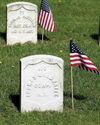
Putting the Pieces Together
Americans needed to begin to put the past behind them, come together, and plan for the future in the spring of 1865. But Abraham Lincoln, the man best equipped to lead them and who had hoped to restore the country as smoothly and peacefully as possible, had been assassinated.
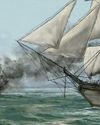
LAST SHOTS
The last Confederate forces in the Civil War didn’t surrender in the spring of 1865 or on a battlefield.
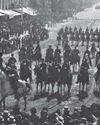
AND IN OTHER 1865 NEWS
A group of African Americans stop at the White House’s annual public reception on January 1, where they shake hands with President Abraham Lincoln.
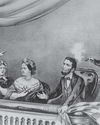
A Plot to Kill President the
For several months, actor John Wilkes Booth’s band of conspirators had plotted to capture President Abraham Lincoln and hold him hostage in exchange for Confederate prisoners.
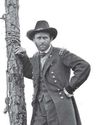
Let the Thing Be Pressed
In June 1864, Union Lieutenant General Ulysses S. Grant began a nearly 10-month campaign in Virginia.
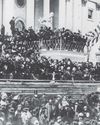
HEALING THE NATION
President Abraham Lincoln took the oath of office for the second time on March 4, 1865.

A Helping Hand
The spring season is hard in any agricultural society. Plants and animals are too small to eat.
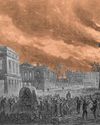
WAR SHERMAN-STYLE
As far as Union Major General William T. Sherman was concerned, the Civil War had gone on long enough.
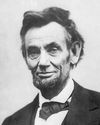
PEACE TALKS
The fall of Fort Fisher made clear that the Confederacy’s days were numbered. Southerners were tired and hungry.
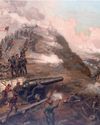
FORT FISHER'S FALL
Outnumbered Confederate soldiers inside Fort Fisher were unable to withstand the approach of Union troops by land and the constant Union naval bombardment from the sea.